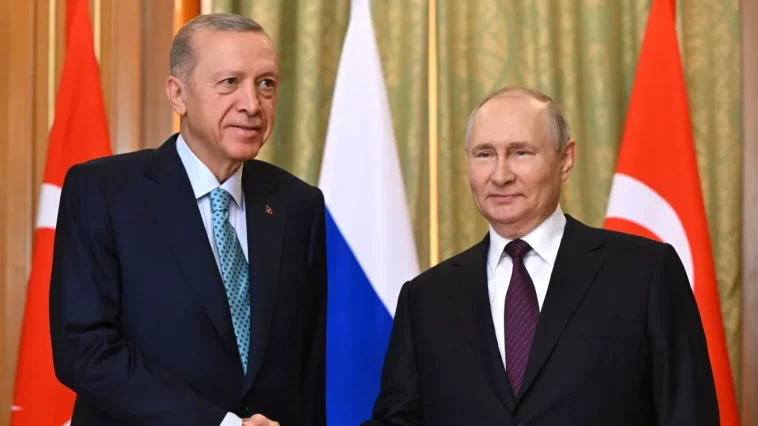On Monday, Russian President Vladimir Putin stated that unless the West fulfills its commitments to help Russian agricultural exports, the grain arrangement that allowed Ukraine to move grain securely over the Black Sea will not be reinstated.
Putin made the statement following discussions with Turkish President Recep Tayyip Erdogan, who, along with the United Nations, mediated the agreement regarded as crucial for global food supplies, particularly in Africa, the Middle East, and Asia. Ukraine and Russia are significant suppliers of essential commodities to developing nations, including wheat, barley, and sunflower oil.
Russia refused to extend the agreement in July, citing the non-fulfillment of a promise to remove obstacles to Russian exports of food and fertilizer. It stated that shipping and insurance restrictions hampered its agricultural trade, despite the fact that it has shipped record quantities of wheat since last year.

Putin stated that if these obligations were met, Russia could return to the agreement “within the next few days.”
He added that Russia is near to finalizing an agreement to provide six African nations with free grain. Russia will ship one million metric tons (1.1 million tons) of inexpensive grain to Turkey for processing and delivery to impoverished countries, according to the Russian leader.
Since Putin’s withdrawal from the grain initiative, Erdogan has repeatedly vowed to renew agreements that prevented a food crisis in sections of Africa, the Middle East, and Asia.
Prior to the negotiations for the global food supply, analysts predicted that Putin would strike a hard bargain.
Tim Benton, a food security expert at the Chatham House think tank, stated, “My gut feeling is that Putin recognizes the leverage he possesses by using food as an economic weapon, and will therefore fight for all the concessions he can get on his wish list.”
These may include Russia’s agricultural exports, exports of fertilizer, or broader issues, he said.
The Joint Coordination Centre in Istanbul, which organized the grain exports from Ukraine, reported that 57% of the grain went to developing nations, with China being the main recipient, receiving nearly a quarter of the food.
The meeting occurred against the backdrop of the recent Ukrainian counteroffensive against the Kremlin’s invasion forces.
Sunday, Ukrainian President Volodymyr Zelenskyy announced that Defense Minister Oleksii Reznikov will be replaced this week.
READ ALSO : G 20 without President Xi, Premier Li replaces him.
The position calls for “new approaches,” Zelenskyy stated without elaboration.
Reznikov published a photograph of his resignation letter on Monday.
In addition to withdrawing from the grain agreement, Russia has repeatedly attacked the Odesa region, where the principal Black Sea port of Ukraine is located. The Ukrainian air force reported on Monday that it had intercepted 23 of 32 drones aimed at the Odea and Dnipropetrovsk regions, but did not specify the damage caused by the drones that evaded capture.
During the 18-month conflict in Ukraine, the Turkish president has maintained close ties with Putin. Turkey has not joined Western sanctions against Russia in response to its invasion, emerging as Russia’s principal trading partner and logistical center for international trade.





